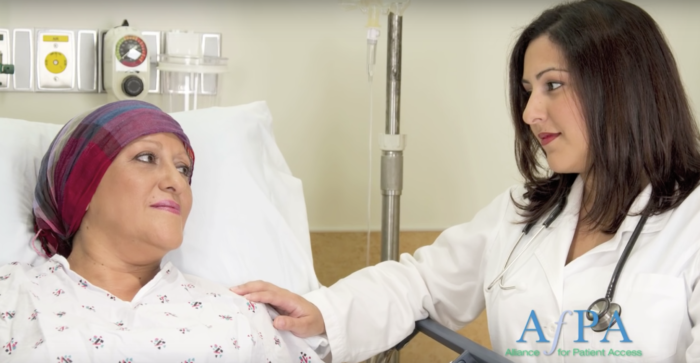About 83 percent of Americans say they could depend upon their health insurer if diagnosed with a serious illness like cancer, according to Aimed Alliance polling. But does that expectation hold true? Actual cancer patients’ treatment experiences reveal a more complex reality.

Kaiser Health News recently reported that patients with Affordable Care Act exchange health plans may not have access to top cancer centers, specifically those recognized by the National Cancer Institute. The institute distinguishes cancer centers that provide patients with multidisciplinary care, innovative treatments and clinical trials access. There are 69 centers in all.
And the institute’s recognition signals more than simply prestige. Patients with certain types of cancer may be 20-50 percent more likely to die if not initially treated at one of these centers, research shows.
Holes in exchange plan participation, combined with narrow health care provider networks, could account for cancer patients who lack access. Three-fourths of National Cancer Institute centers reported participating in an exchange health plan as of 2015. The 25 percent that did not, however, ironically hailed from states with some of the most exchange patients – namely, Texas and New York.
Unfortunately, disappointment with health plan coverage is nothing new for some patients. Twenty-six percent of the Aimed Alliance’s poll participants recalled signing up for a health plan with the understanding that a specific treatment was covered. Later they discovered it was not. Patients who develop cancer while on an exchange health plan may encounter a similar disconnect between their expectations and the reality of treatment access.
As Congress explores the future of the Affordable Care Act, outreach has focused on preserving certain hallmarks of the law – bans against lifetime benefit caps and coverage discrimination due to preexisting conditions, to name two. Cancer patients’ experiences might remind policymakers to also ensure that health coverage, whatever form it takes in the future, protects access to effective and necessary cancer treatment.

